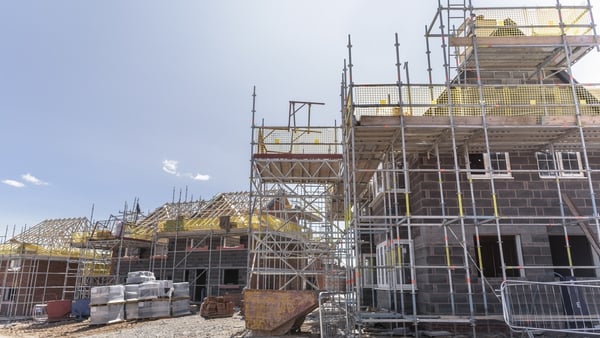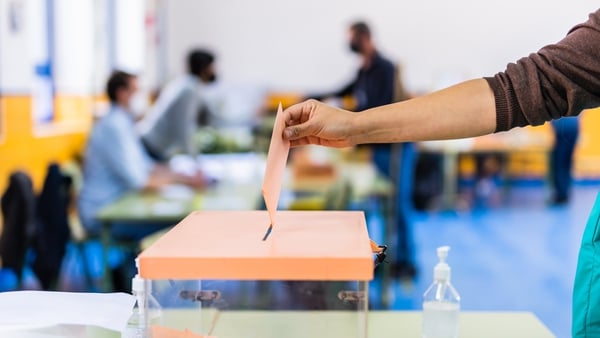Public sector unions have claimed that the Government's offer of wage increases fell far short of inflation.
Pay talks between the two sides at the Workplace Relations Commission (WRC) ended in the early hours of this morning without agreement.
The Irish Congress of Trade Union's Public Services Committee said the Department of Public Expenditure and Reform (DPER) had offered supplementary pay rises of 2.5% for the period 2021-2022, despite expected annual inflation of at least 9% over the two-year period.
Another 2.5% was proposed for next year, according to ICTU.
"The real-term shortfall between the modest pay increases in the current public service agreement and rising living costs is huge and could yet grow," said ICTU President Kevin Callinan.
We need your consent to load this rte-player contentWe use rte-player to manage extra content that can set cookies on your device and collect data about your activity. Please review their details and accept them to load the content.Manage Preferences
"In 2021, the gap between annualised Building Momentum increases and annualised inflation was 2.15%. If inflation averages 7% this year - and it could well be higher - the 2022 gap would be 6.75%.
"Who knows what 2023 will bring?" he said.
Mr Callinan added that, if the WRC saw value in another engagement, the union side would be available.
The Government is pointing out that the 5% pay rise offered to unions comes on top of a 2% increase already provided for in the existing public sector pay deal 'Building Momentum', bringing the cumulative pay offer to 7% over two years.
A Government source described the additional 5% offer as "substantial" with an associated cost of approximately €1.2 billion, which would bring the total cost of the pay agreement to €2.3 billion.
Earlier, Taoiseach Micheál Martin said the Government had "come some distance" in the pay talks but acknowledged there was still a gap between the two sides.
The Minister for Public Expenditure and Reform, Michael McGrath, said: "While it is disappointing that the talks have not yet delivered an agreed outcome, I understand the WRC has asked all sides to reflect on their positions and will continue to engage with the parties.
"For the Government's part, we have been clear that the aim is to reach a mutually acceptable solution to the current challenges - one that strikes the right balance and is both fair and affordable to the taxpayer and to public servants.
"However, there are obviously limits to what is possible and sustainable given the many expenditure pressures that Government faces.
"As I have acknowledged, these were always going to be challenging discussions given the current inflationary backdrop."
There is a 'significant gap' in pay talks between unions and the Government, ICTU President Kevin Callinan says, adding 'I don't know if that can be bridged and it certainly can’t be bridged in circumstances where the other side isn’t prepared to move' | https://t.co/k6p8TmewBa pic.twitter.com/n63quPX8L0
— RTÉ News (@rtenews) June 17, 2022
Garda representative bodies are also taking part in the pay talks.
Antoinette Cunningham, General Secretary of the Association of Garda Sergeants and Inspectors, said it had been a long, challenging day.
"We are disappointed not to have made more progress. While we made some small elements of progress, we are certainly disappointed that we haven't made more," she said.
"The matter is adjourned so we won't get into the details. We have to reflect on what happened here today and we await to see when talks will resume.
On garda representative pay talks with the Government, AGSI General Secretary Antoinette Cunningham said 'We're disappointed not to have made more progress. While we made some small elements of progress, we are certainly disappointed we haven't made more' https://t.co/TjHnAmd5CW pic.twitter.com/QBzKbxz52H
— RTÉ News (@rtenews) June 17, 2022
"These are very challenging negotiations and this is a challenging environment we find ourselves in. We're not sure if we can achieve what we're setting out to achieve but we will certainly try very hard."
The WRC pay negotiations came after unions triggered a review clause within the existing public sector pay deal 'Building Momentum' due to rising inflation.
Under the current agreement, public sector workers received a 1% pay increase last year, with a further 1% due in October.





